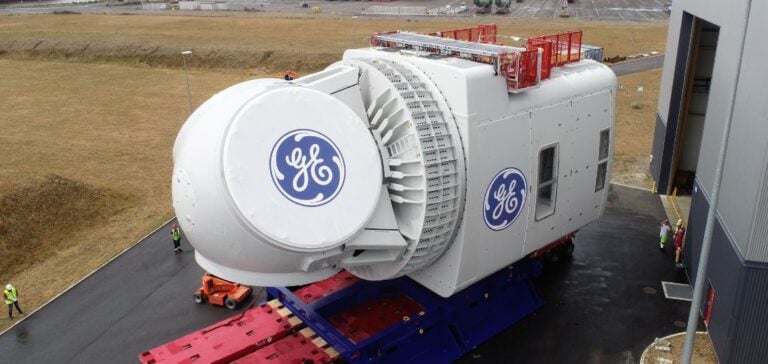GE Vernova, an independent entity since April 2024, reports robust second-quarter financial results.
Sales reached $8.2 billion, up 1% on the previous year.
This growth is largely due to the performance of its services, in line with Bloomberg analysts’ forecasts.
The company posted a net profit of $1.3 billion, a marked improvement on the $149 million loss posted a year earlier.
Global orders amounted to $11.8 billion, reflecting sustained demand for GE Vernova’s energy solutions.
The Power Division, covering the hydro, nuclear, gas and steam segments, saw revenues rise by 8% to $4.5 billion, mainly thanks to sales of gas turbines and hydroelectric equipment.
Orders in this segment increased by 27%, totaling almost $5 billion.
Growing electrification, challenges for the wind power sector
The Electrification segment, which covers grids, solar energy, storage solutions and software, reported significant growth, with revenues up 19% to $1.8 billion.
This performance was driven by strong demand for network and power conversion solutions.
However, orders in this segment fell slightly by 4% to $4.8 billion, after an exceptionally buoyant second quarter 2023.
By contrast, the Wind Division, which specializes in onshore and offshore wind energy solutions, suffered a significant decline.
Revenues declined by 21% to $2.1 billion, mainly due to lower deliveries for onshore wind power.
Orders fell by 44% to $2.2 billion, following the cancellation of a major offshore wind order.
Revision of annual forecasts
Despite the challenges facing the wind power sector, GE Vernova is raising its forecasts for 2024.
The company now expects sales to be at the high end of the original estimate, between $34 and $35 billion.
This upward revision is mainly attributed to a better-than-expected performance in the Electrification division.
GE Vernova’s ability to meet the growing demand for diversified and sustainable energy solutions is a key factor in its performance.
Second-quarter results demonstrate the company’s effectiveness in capitalizing on its most dynamic segments, while navigating the challenges specific to certain branches of its business.
GE Vernova shares were up 1.8% in electronic trading before the opening of the New York Stock Exchange, reflecting investor confidence in the company’s growth trajectory.






















